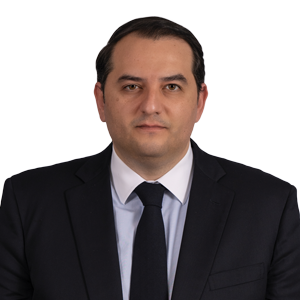This article was first published by Latinvex.
In June of 2021, the Biden Administration announced that combating corruption in Latin America was an economic and national security priority, pledging to coordinate resources to fight corruption, curb illicit finance, and build international partnerships in the anti-corruption fight while improving foreign assistance.
Numerous recent enforcement actions including Glencore, Stericycle and Tenaris involving activity across the continent have demonstrated the Biden Administration’s resolve on anti-corruption efforts in Latin America, not least of which is the recent return of forfeited criminal proceeds to Peru as part of the ongoing Odebrecht bribery case. In addition to corporate actions, the DOJ commitment to aggressively pursue individual prosecutions within the alleged bribery schemes continue to show.
The latest is a July 19, 2022, Miami indictment that charged three defendants with alleged corruption offenses (all defendants are, of course, innocent until proven guilty), including conspiracy to violate the Foreign Corrupt Practices Act (FCPA), and substantive violations of the FCPA related to a scheme to bribe Ecuadorian insurance officials, which involved activities in Costa Rica, Ecuador, Switzerland Uruguay, the United Kingdom, and Miami.
Allegedly, one Ecuadorian and United States dual national, a Florida resident, and two Ecuadorian citizens residing in Costa Rica (the “Defendants”) conspired to and bribed individuals working for two Ecuadorian state-owned insurance companies to secure and retain business. According to the indictment, the defendants operated a scheme using bank accounts in Panama to pay bribes to accounts in Switzerland, and the United States, for the benefit of four officials associated with the Ecuadorian insurance companies to secure insurance business for two reinsurance brokers located in the United Kingdom.
The commissions earned on the business by the reinsurance brokers were then split, between the reinsurance brokers in London and individuals instrumental in the securing of the business, including the Defendants’ companies, operated out of Miami.
Agency theory and liability within individual FCPA prosecutions will continued to evolve in coming years as will the debate on corporate self-disclosure credit. What remains clear is the U.S. focus to curb corruption in Latin America.
The prosecution of the insurance bribery scheme shows the far reach of FCPA jurisdiction. The alleged bribe recipients were in Ecuador, bribes were paid through two companies registered in Panama and Ecuador, and the scheme was for the primary benefit of reinsurance brokers located in the United Kingdom. But, the presence of one defendant in Miami and the use of U.S. bank accounts was sufficient to make not only he, but both the other defendants as his agents, and their shell companies, “domestic concerns” as defined in the FCPA. The FCPA does not impose liability on a foreign national who is not an agent, employee, officer, director, or shareholder of an American issuer or domestic concern unless, as was the case here, that person commits a crime within the territory of the United States. Of interest, the Second Circuit recently clarified in more detail the scope of being an agent of a domestic concern.
The DOJ, coincidentally, declined prosecution of the United Kingdom reinsurer company, Jardine Lloyd Thompson Group Holdings (now owned by Marsh and McLennan Companies) due to voluntary self-disclosure, comprehensive cooperation and remediation and full disgorgement of profits derived of approximately $29 million, amongst other factors.
Agency theory and liability within individual FCPA prosecutions will continued to evolve in coming years as will the debate on corporate self-disclosure credit. What remains clear is the U.S. focus to curb corruption in Latin America. Companies operating in there should continue to remain vigilant in their monitoring and compliance policies and should be mindful of the jurisdictional reach of the FCPA even when conducting business primarily outside the United States.
Luke Cass is a partner in Womble Bond Dickinson (US) LLP’s White-Collar Defense, Investigations, and Regulatory Enforcement practice group where he defends corporations and individuals in connection with a variety of federal criminal allegations, and conducts proactive, internal investigations related to, among other things, bribery and the Foreign Corrupt Practices Act.
Will Curtis is an associate in Womble Bond Dickinson (US) LLP’s Capital Markets practice group, focusing his practice on bankruptcy and restructuring matters where he primarily advises financial institutions through the restricting and bankruptcy worlds.
Drew Costello is a Partner at Forensic Risk Alliance where he specializes in providing investigative services for attorneys, corporate management, and government agencies in a variety of areas, including the Foreign Corrupt Practices Act, accounting fraud, and other misconduct.
This article is part of Womble Bond Dickinson’s Growing Global series. For more insights, click here to visit our Growing Global hub.




